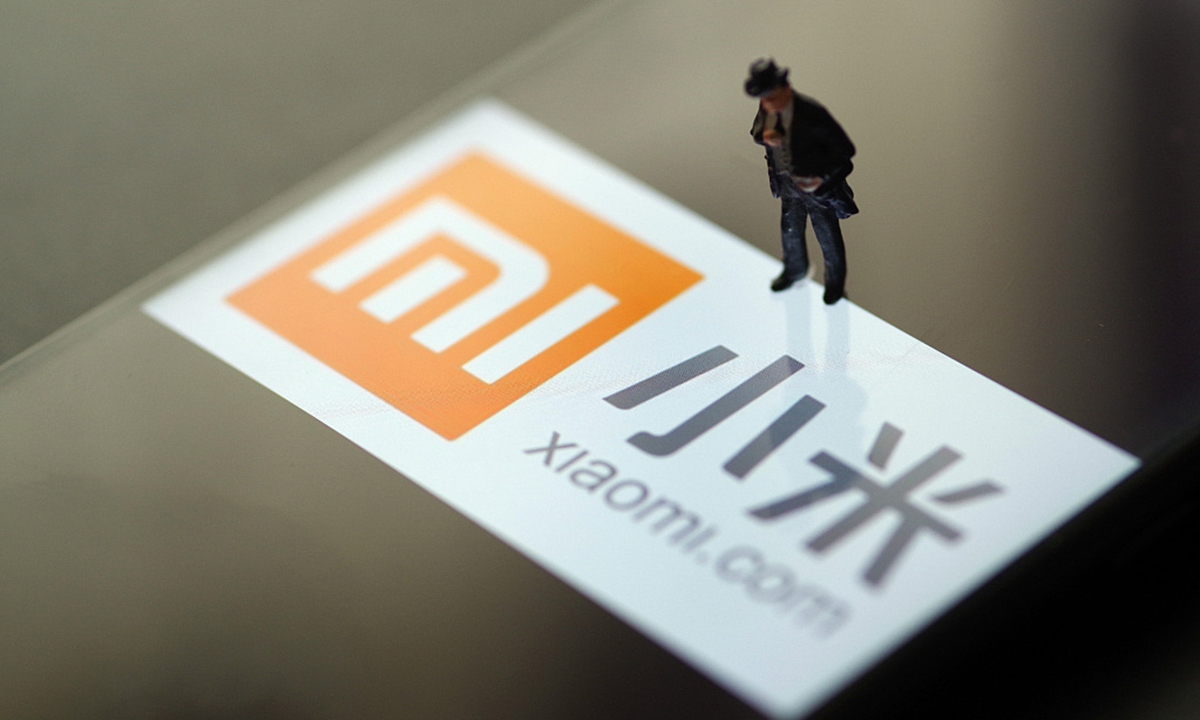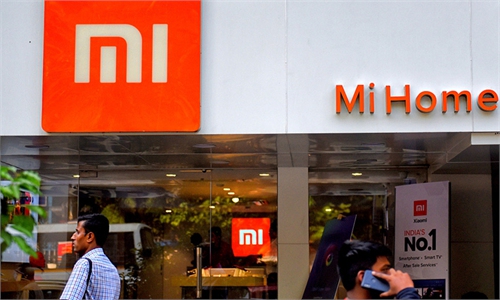
Xiaomi Photo:VCG
Chinese smartphone maker Xiaomi Corp has come under intense regulatory pressure in the Indian market, which may raise concerns over Chinese companies' development in India.
Right after a Reuters report said that Xiaomi alleged its top executives faced threats of "physical violence" and coercion during questioning by Indian officials, Indias Enforcement Directorate on Saturday issued a statement saying the allegations "are untrue and baseless".
Ever since Indian tax inspectors raided Xiaomi's India offices in December, the company has been embroiled in a tax tussle with the Enforcement Directorate over its remittance to foreign-based entities. And judging by the latest media reporting, it is fair to say that Xiaomi hasn't been able to communicate effectively with Indian regulators.
While it is premature to claim whether India is intentionally targeting Xiaomi now, uncertainty surrounding Xiaomi's regulatory predicament should raise a red flag for India. This is because what has happened to Xiaomi could be seen as another example of Indias crackdown on Chinese companies, and no one knows whether such an event of business hostility would lead to more Chinese companies there subject to growing regulatory scrutiny in the Indian market in the future.
If anything, the impression that Chinese and other foreign companies could be intentionally targeted and suppressed isn't something good or favorable for India.
There is no denying that by Indias economy has fared quite well in the past few months. Indias overall exports hit an all-time high of $675 billion in 2021-22, while the Goods and Services Tax collection in April set a new record, with its manufacturing PMI standing at 54.7, all pointing to a revival of the economy. The IMF projected that India is likely to become the worlds fastest growing major economy in 2022 with a growth rate of higher than 8 percent. It is very encouraging for the world to see India to continue to recover quickly from the pandemic-induced woes.
Nevertheless, India still faces the long-term challenge of developing its manufacturing sector, and attracting foreign investment is one of the priorities in moving toward this goal. In this sense, it is of great importance for India to maintain normal and effective communication and coordination with Chinese investors.
Some in India might argue that a "selected crackdown" on Chinese companies would not necessarily be interpreted as Indias hostility toward foreign companies and would not cause a conflict with Indian policy of encouraging foreign investment. But it should be noted that for China and India - neighbors that cannot be altered - effective economic and trade cooperation is in the interests of both countries and their huge populations.
Judging from the global supply chains and the development of global trade relationship over the past years, The biggest problem facing China and India is to consolidate and enhance their positions in the global industrial chain. Prioritizing competition over cooperation will cause unnecessary distraction and friction for both economies, hurting the growth prospects of the worlds two largest emerging market powers.
The same logic also applies to China-India relationship in the global geopolitical arena. As long as China and India are on the same page when it comes to major geopolitical eruptions, their voices will become bigger and be heard by the established powers.
Of course, this may not be the trend the strategists in the US and the West would like to see, because some powers only aspire to see more competition and rivalry, rather than cooperation and partnership, between the two largest developing economies in Asia. Now it's time for New Delhi to render the relationship attentively.



